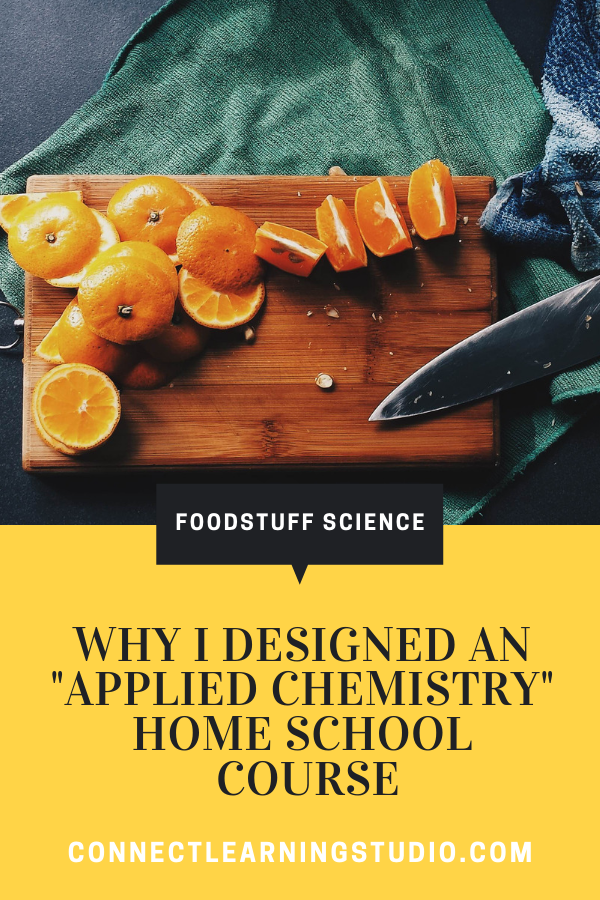Why I Designed an "Applied Chemistry" Home School Course
I was THAT kid who got science encyclopedias for birthdays, planted the maple “helicopter seeds” so I could plant new trees, and tore apart old electronics (even though I had no clue what I was looking at).
I feel like I have always loved learning, fun facts, and seeing how big ideas connect to smaller details, but I do NOT like it when someone tells me how and what I should be learning about (hands up for all the college rebels!)
So, I've designed an Chemistry course that I would have loved to take!
Fast forward from curious kid to young entrepreneur teacher teaching science labs to home schoolers from a popular science curriculum (cause chemistry is a usual “I have no clue where to start” subject).
As a teacher, I was frustrated because I kept getting confused with how the labs were written and had to be brutally honest about the practicality of stoichiometry (balancing equations).
Now, don’t get me wrong. I think having a general knowledge about lots of things is great! I also thinkyou should be familiar with the foundations of the fields you’re interested in.
But let’s be honest.
On the Internet alone, there is an estimated 1 BILLION plus websites. And in 2010, Google estimated there have been at least 129 million different books published. And let's not even get started on Youtube videos or cinema.
There is NO way anyone will be able to know everything!
(Except God, but He’s the exception)
So, in an education system that says “Students need to learn about chemistry,” I want to say (without rocking the boat on questioning why that particular subject should be included for academic “success”), “Okay. How about a chemistry course that actually deals with something every person on the planet needs?”
(Among other necessary things like air, water, and hope, I’m talking about the topic of food :)
According to the Free Dictionary, an “applied science” is “the discipline dealing with the art or science of applying scientific knowledge to practical problems.”
So, for this discussion, for instance, we could ask “Why does it matter if I mix the baking powder in at the beginning of the recipe or the end?” And that question, among thousands, is how chemistry relates to food, and how science in general relates to food.
This course (and the in-the-works “Applied Biology” course) was conceived because I want students to relate the complicated subject of “Chemistry” to a topic that affects their life every day.
I want to be able to say “Yes, understanding why your brain loves flavor matters because you make decisions with your health and your pocketbook every time you choose something just because it tastes good.”
I want the time that students take for “Chemistry” in high school to feel like it matters.
Learning is good, and learning that makes a practical difference is even better.
In the end, I hope this course is an inspiration and encouragement for students who are ready to understand the world in relevant ways, and aren't afraid to dig in and learn!
-Kristin at Get School Done
{You can read all about the "Applied Chemistry" course on FoodStuffScience.com}
Sources for this post:
Stoichiometry, 1 Billion Websites, Google Book Estimates, Applied Science Definition

